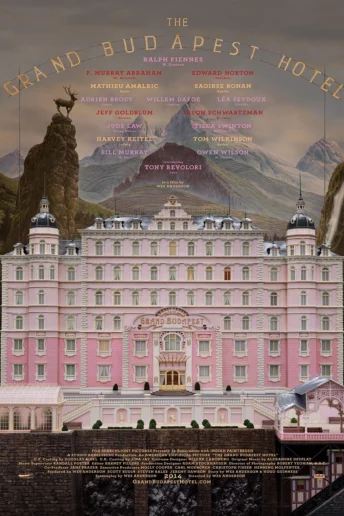
2014
Grand Budapest Hotel
Wes Anderson’s auteur-driven films are idiosyncratic in the best way, and when he began working on The Grand Budapest Hotel with Alexandre Desplat composing the Academy Award-winning music, he wanted a score that honored that singular vision.
Anderson and Desplat wanted to record the score on balalaikas—a Russian, triangular stringed instrument. As Mark began considering logistics, he assumed they would achieve a fully orchestrated sound by recording multiple takes of a few musicians. Anderson had something more ambitious in mind—a full ensemble of balalaikas.
Mark and Randall Poster—the film’s music supervisor—were able to find eighteen musicians in Paris, but Anderson wanted a more robust sound, so they located an additional twenty-six performers in Moscow. Eventually, the team assembled a full balalaika orchestra corresponding to the five string sections in a traditional orchestra.
But the score wasn’t done.
Without other instruments, the score sounded a little too sparse to have the intended dramatic effect. Anderson was resistant to add other instruments, but the music needed more. After Mark listened to Desplat’s mock-ups, he reached out to a friend to record some creative ways to use brass and woodwinds. They were able to find a quirk that resonated with the film and was musically cohesive, which led to Mark writing some muted brass sections.
Memorably, the score also uses alpine horns, which were another challenge to incorporate because these horns aren’t traditionally in the same key as the balalaikas. Mark found a woman in the UK who made custom horns, and these were used to build out the score.
Finally, Anderson had a request—he wanted a balalaika sketch expanded into a full orchestration for the end credits, and he wanted it to include every musician involved in the project. He sent Mark an iPhone video of the performance, which Mark then transcribed and used as the basis for an arrangement involving a choir, the balalaikas, an organ, a zither, and handclaps.
Through Mark’s collaboration with Alexandre Desplat, they were able to create a score that was as memorable and frenetic as The Grand Budapest Hotel itself, resulting in Desplat’s well-deserved Oscar win.